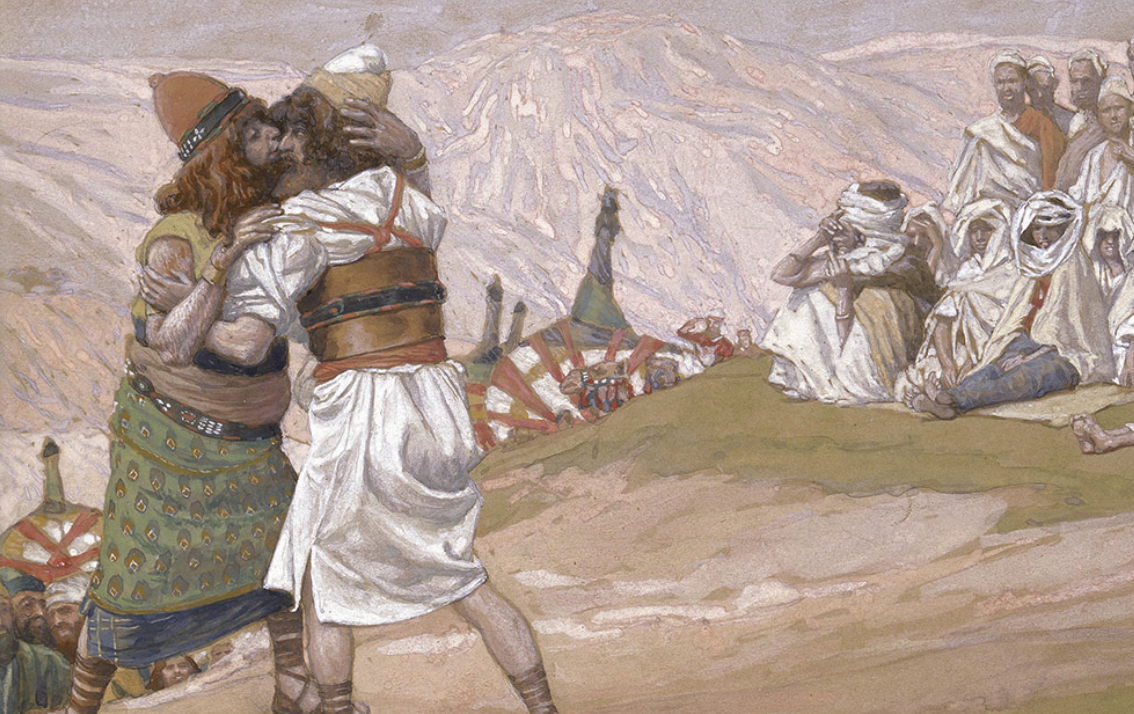To cure hurt, reconciliation must be planned with anticipation

Posted: 21.11.2022
Written by: Thomas Kilian, Program Manager & Chaplain
Genesis 33:1-2 (ESV) reads:
“(1) And Jacob lifted up his eyes and looked, and behold, Esau was coming, and four hundred men with him. So he divided the children among Leah and Rachel and the two female servants. (2) And he put the servants with their children in front, then Leah with her children, and Rachel and Joseph last of all.”
1. Reconciliation must be planned with anticipation.
The first phrase we read in this sentence is “Jacob lifted up.” What might that tell us? Jacob (his name means “heel grabber” or “Schemer”) was anticipating being reconciled to his twin brother Esau. They needed reconciliation as years ago, Jacob stole Esau’s birthright.
For those who might not know, my sister, Helen, and I are twins. We went to the same Bible college together but because we have different classes, we did not see each other as much as twins would like. On most school days I looked with anticipation to find my sister to sit with her during lunch. We have both felt what we like to call “Twin withdraws” whenever we are apart for long periods of time. I believe that Jacob is experiencing a similar set of feelings.
Jacob is yearning so much to be reunited with his brother he is looking for the opportunity to be reconciled with him. What we learn from Jacob is that reconciliation must be planned with anticipation!
Dear brothers, look for opportunities to be reconciled. Opportunities to reconcile ourselves to God but also to others. It says in Romans 12:18, “If possible, so far as it depends on you, be at peace with all men.”
Are we anticipating opportunities for reconciliation? Many of us would agree that we long to see reconciliation in our relationships. But reconciliation can be a scary thing. Jesus said to the paralyzed man at Jerusalem’s healing pool, “Do you want to be healed?” At first, I am tempted to say, “What type of question is that? Of course, the paralyzed man wanted to be healed as he had been waiting for years anticipating bathing in the healing pool to be healed!” But the reality is that Jesus knew that the man had been paralyzed for thirty-eight years.
What if we had been plagued with resentment for thirty-eight years? Would we really want to be healed? Reconciliation can be a scary thing. With that being said, it is important to not only anticipate reconciliation but also to plan with purpose how you will be reconciled.
2. Reconciliation must be planned with purpose.
In the second verse we read, we find Jacob planning how he will be reconciled to his brother. He does so by preparing his family for his reunion with his brother. I believe that Jacob is operating in his new self, only using his God-given scheming personality to earn favor for reconciliation. Jacob is planning how he will be reconciled with his brother. Both purposefully and tactfully, Jacob is staging his family in preparation to meet his brother for the first time. At this time, I would like to backtrack a little bit to Jacob’s action of preparation the day before. If we read the chapter before this account, in verse 7 of chapter 32, we find Jacob sending 550 head of livestock along with maidservants to Esau to earn favor from him. Jacob later explains to his brother Esau that these caravans are a “gift,” to Esau — a gift to find favor in the eyes of his brother. In Hebrew “gift” means a “blessing.” Perhaps Jacob was reconciling back to Esau what was stolen from him twenty years before.
Jacob most definitely planned how he would be reconciled with his brother. Jacob shows us that it is important to plan our reconciliation because we have to count the wrong we might have to another person in a relationship. Why? So we can reconcile, “bring back” and “account” for things done in the past that might have caused hurt. Today, whether we are the offenders or offended, we need to plan purposefully how we will reconcile ourselves to others.
From the family of Jacob we have learned how the hardest part of reconciliation is not in the planning but in the doing; taking initiative in reconciliation.
— AMEN
Comments